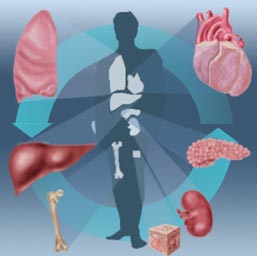Relatives of deceased organ donors deserve a tax break, says ethicist
A financial incentive means that fewer donations would be vetoed  Would the rate of organ donation increase
Would the rate of organ donation increase
if relatives of deceased donors got a tax break? Jurgen De Wispelaere, an
ethicist at the Université de Montréal in Québec thinks so. In an article in the
Journal of Medical
Ethics written with Lindsay Stirton, a law professor at the
University of Manchester in England, he argues that a modest financial incentive
would mean that fewer donations would be “vetoed” by bereaved family members
and that people would be more likely to discuss organ donation with their loved
ones.
The change would require redesigning the
organ donor registration process to include a second signatory who would
receive the tax credit. “The
second consenter becomes a living advocate of the donor after death and also
represents the family to medical staff,” De Wispelaere told the Canadian
Medical Association Journal. “This would combat a reluctance of the family to
accept that the donor really was a donor. It would ensure that they are much
more comfortable with [the person becoming an organ donor].” The tax credit
would be negated if the second signatory reneged on the donation.
Dr De Wispelaere denied that this was a
backdoor to market in organs. “The reason it’s not a market is that there is no
competitive pricing. It’s universal and the tax credit will be much, much more
modest, than a price on the black market,” he explains. “The tax credit would
be the same independent of how many organs are harvested.” ~ Canadian Medical
Association Journal, June 9
Michael Cook
organ donation
organ markets
- How long can you put off seeing the doctor because of lockdowns? - December 3, 2021
- House of Lords debates assisted suicide—again - October 28, 2021
- Spanish government tries to restrict conscientious objection - October 28, 2021
